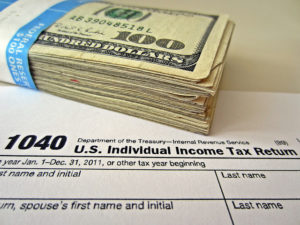
The Biggest Mistake You Are Making with your 401(k)k could cost you over a million dollars. For some of you, it could lower your 401(k) balances by several million dollars. We are facing a retirement planning crisis in America. Boomers, GEN X, and even Millennials are not saving enough to comfortably retire and the average person is leaving more than $30,000 of retirement income on the table. Here is how they are messing it up and making the #1 401(k) mistake. Keep reading to avoid this Million Dollar 401k Mistake.
By David Rae Certified Financial Planner™, Accredited Investment Fiduciary™
Do you know the #1 Mistake People Make with their 401k?
Would you be more likely to contribute enough to your 401(k) in order to get your full employer match if you knew how much that match would grow by the time you’re ready to retire? Perhaps you might be more motivated if you realized the tens of thousands of dollars you’d be losing during your retirement years by not getting the full employer match. Not maximizing your employer match could cost millions of dollars over the course of your working lifetime and typical retirement.
Nearly one in five workers are making this mistake. How much you should contribute to and the best retirement investment allocations are debatable. However, there is no arguing that you are leaving free money on the table if you fail to get the full employer match. Over time, this can drastically reduce your income in retirement. This is why missing the full employer match is the number one biggest mistake people make in their 401(k) retirement plans.
How Much is the Employer Match Really Worth?
On average, employees leave $1,336 in matching funds on the table each year by not saving enough in their retirement accounts. This is according to a 2015 study by Financial Engines. Hopefully, your salary is bigger now than in 2015, which means this single retirement planning mistake is also larger now.
You may think this is no big deal. What does $1,336 mean for your retirement security, which may be decades away? How much could that really add up to? A mistake would be to believe that the number would add up to $60,000 ($1,336 multiplied by 45 years of work).
Cost of Skipping Full 401(k) Match over Your Career – The Million Dollar 401k Mistake
Leaving $1,336 of a company match on the table over your working career from 22 to 67 would total more than $60,000 in lost money from your employer. You would also end up paying more state and federal income taxes over your working years. But these numbers pale in comparison to what you are giving up in retirement security. Invested wisely, that money would grow exponentially over time.
For example, putting that $1,336 into your 401(k) each year, from 22 to 67, and assuming an average return of 10% per year, how much do you think you would have at retirement? The $1,336 per year, with an average return of 10%, would grow to more than $960,000 by the time you were 67. That number alone is well beyond what the average person has saved for retirement.
How much does $960,000 translate into retirement income?
Using the 4% rule for the sake of simplicity, how much income would $960,000 mean for your retirement? The 4% rule basically means withdrawing 4% from your retirement account each year. In this case, you could take out $38,400 per year in retirement. Not a small amount of money, but hardly enough for you to live your dream retirement.
Yes, you read that right, just giving up the average employer match over your working life could cost you $38,000 per year in retirement income. Additionally, there are other retirement income strategies that could make skipping the employer match look even worse. The bigger the retirement income, the bigger the mistake of skipping the employer match. Either way, I think we can agree having more money in retirement is better than having less.
Employer Match and your Retirement Contributions- Go for a Multi-Million Dollar 401k
Capturing all of your employer matches throughout your career can help you get closer to financial freedom in retirement. If the average person is losing out on $1,336 of employer match each year, that individual is also likely not contributing much. Broken down over the course of a year, $1,336 is only $111.33 per month.
Now, let’s assume you start working at the age of 22 and remain with the same employer until you retire at the age of 67. That, coupled with the fact that your employer offers a 100% match and you save $111.33 each month throughout your career, you could have roughly $1,920,000 in your 401(k) at retirement.
While very few employees remain with the same employer for their entire careers, it’s probably not unrealistic for anyone making $50,000 per year or more to put $111.33 into a retirement account each month. The money goes in pre-tax, and you get a match from your employer. Compound interest does its thing over time, and before you know it, you are left with more money than you ever thought possible.
Getting Started Saving for Retirement is the most Important Thing
I started my first retirement account with a whopping $25 per month and increased my monthly contributions over time. The most important thing was to get started. Whatever your financial situation, it’s important to start saving for retirement, whatever you can, and no amount is too small. Soon that $25 will grow to $111.33 and beyond. You may even get that employer match and double your money right off the bat.
It’s never too late to improve your retirement security. The longer you wait, the harder it will be to achieve total financial freedom. For more on what you should have saved at every age check out this post, How Much Should Gen X And Millennials Have Saved At Every Age? Given the choice, I hope you will opt for more retirement income rather than less.
Make this the year you get your financial house in order, reach out to see how we can help you reach financial freedom faster and easier.

Live for Today, Plan for a Richer Tomorrow.
DAVID RAE, CFP®, AIF® is a Los Angeles financial planner with DRM Wealth Management. A regular contributor to Advocate Magazine, Forbes.com, Investopedia not to mention numerous TV appearances. He helps friends of the LGBT Community across the USA get on track for their financial goals. For more information visit his website at www.davidraefp.com
If you liked Million Dollar 401k Mistake, you will also find this post valuable.
Missing an Old Retirement Account? How to Find Lost 401k Money Now










[…] make (new car, furniture, and booze). At an absolute minimum, make sure you take advantage of a contribution match that may available on your company 401k plan. It’s like getting free money. A big trick is to incorporate saving into your budget, before […]
[…] make (new car, furniture, and booze). At an absolute minimum, make sure you take advantage of a contribution match that may available on your company 401k plan. It’s like getting free money. A big trick is to incorporate saving into your budget, before […]
[…] make (new car, furniture, and booze). At an absolute minimum, make sure you take advantage of a contribution match that may available on your company 401k plan. It’s like getting free money. A big trick is to incorporate saving into your budget, before you […]
[…] to retirement accounts like a Roth IRA or your 401(k) at work. The money you put into that 401(k) may help you get an even bigger refund next year. Many people also use their refunds to make […]
[…] the very least, start investing in your employer’s 401(K) plan. If they provide a company match, make sure to get the full amount. THIS IS LIKE FREE MONEY!!!! Would you turn down a raise? I hope not. It’s important to realize that a 401(K) plan is a […]
[…] Maximizing employee benefits like stock options, health insurance, and even 401k plans. […]
[…] night was “With Brexit markets are expected to drop tomorrow what does this mean for people’s 401(K)’s?” If you check the markets in the next few days you can expect the Brexit news to cause some […]
[…] put as much money as I could into my retirement accounts, and you should too. If you have a 401(k) or an IRA you can save money on taxes by contributing. Essentially saving money into your […]
[…] The Million Dollar 401(K) Mistake Too Many People Make […]
[…] of money and income by not taking advantage of workplace benefits? The most common place to shoot yourself in the foot is by not contributing to a workplace retirement plan, especially when they offer a match or profit sharing. These dollars may also include health […]
[…] If you have been laid off, your 401(k) plan contributions will stop on their own. No paycheck will mean no further contributions to your retirement accounts. For the underemployed, continue making your regular contributions if you can. At the bare minimum, contribute what you need to in order to get the full employer 401(k) match. Mis… […]
[…] Don’t forget about it forever; you should strive to increase your contributions over time. Also, make sure to get the full employer match; skipping this could cost more than a million dollars…. If you need a little more motivation, you will get a tax break for your contributions? Who […]
[…] Don’t forget about it forever; you should strive to increase your contributions over time. Also, make sure to get the full employer match; skipping this could cost more than a million dollar…. If you need a little more motivation, you will get a tax break for your contributions? Who […]
[…] time. Don’t forget about it forever; you should strive to increase your contributions over time. Also, make sure to get the full employer match; skipping this could cost more than a million dollar…. If you need a little more motivation, you will get a tax break for your contributions? Who […]
[…] the employee contribution but more time will be allowed for the business portion contribution. For a 401(k), you can contribute up to $19,500, pre-tax, in 2020. An additional catch up contribution, up to […]
[…] the easier it may be to reach your financial goals. At the very least make sure to get your company matches on your 401(K), and maybe even save some money on taxes. At best, get on a great financial plan, and stick to […]
[…] set aside in your “travel fund.” On the other hand, if you have to pull it out of your 401(k), you’re going to hate the tax bill the IRS sends you next April, taking the ‘bon’ right out […]
[…] You should strive to maximize the tax benefits of your retirement accounts at work. For those lucky enough to have a generous employer match, you need to save at least enough into your 401(k) to get the entire match. Skipping the benefit could be a million-dollar mistake for the average worker. […]
[…] You should strive to maximize the tax benefits of your retirement accounts at work. For those lucky enough to have a generous employer match, you need to save at least enough into your 401(k) to get the entire match. Skipping the benefit could be a million-dollar mistake for the average worker. […]
[…] It is best to try to maximise the tax advantages of your retirement accounts at work. For these fortunate sufficient to have a beneficiant employer match, it’s essential save a minimum of sufficient into your 401(okay) to get the complete match. Skipping the benefit could be a million-dollar mistake for the average worker. […]
[…] You should strive to maximize the tax benefits of your retirement accounts at work. For those lucky enough to have a generous employer match, you need to save at least enough into your 401(k) to get the entire match. Skipping the benefit could be a million-dollar mistake for the average worker. […]
[…] For those of you who are just starting to get serious about investing, perhaps, start by contributing to your employer’s 401(k). Set up an automatic contribution from your paychecks into a diversified portfolio and forget about it. Ok, don’t completely forget about it and try to increase your contributions each year and every time you get a raise. You will get a tax deduction on your contributions, and you may even get free money in the form of an employer match or profit-sharing contributions. […]
[…] Pour ceux d’entre vous qui commencent tout juste à investir sérieusement, commencez peut-être par cotiser au 401(k) de votre employeur. Mettez en place une contribution automatique de vos chèques de paie dans un portefeuille diversifié et oubliez cela. D’accord, ne l’oubliez pas complètement et essayez d’augmenter vos contributions chaque année et chaque fois que vous obtenez une augmentation. Vous bénéficierez d’une déduction fiscale sur vos cotisations, et vous pourrez même obtenir de l’argent gratuitement sous la forme d’un cotisations patronales ou d’intéressement. […]
[…] For those of you who are just starting to get serious about investing, perhaps, start by contributing to your employer’s 401(k). Set up an automatic contribution from your paychecks into a diversified portfolio and forget about it. Ok, don’t completely forget about it and try to increase your contributions each year and every time you get a raise. You will get a tax deduction on your contributions, and you may even get free money in the form of an employer match or profit-sharing contributions. […]
[…] For those of you who are just starting to get serious about investing, perhaps, start by contributing to your employer’s 401(k). Set up an automatic contribution from your paychecks into a diversified portfolio and forget about it. Ok, don’t completely forget about it and try to increase your contributions each year and every time you get a raise. You will get a tax deduction on your contributions, and you may even get free money in the form of an employer match or profit-sharing contributions. […]
[…] For those of you who are just starting to get serious about investing, perhaps, start by contributing to your employer’s 401(k). Set up an automatic contribution from your paychecks into a diversified portfolio and forget about it. Ok, don’t completely forget about it and try to increase your contributions each year and every time you get a raise. You will get a tax deduction on your contributions, and you may even get free money in the form of an employer match or profit-sharing contributions. […]
[…] For those of you who are just starting to get serious about investing, perhaps, start by contributing to your employer’s 401(k). Set up an automatic contribution from your paychecks into a diversified portfolio and forget about it. Ok, don’t completely forget about it and try to increase your contributions each year and every time you get a raise. You will get a tax deduction on your contributions, and you may even get free money in the form of an employer match or profit-sharing contributions. […]
[…] For these of you who’re simply beginning to get critical about investing, maybe, begin by contributing to your employer’s 401(okay). Arrange an computerized contribution out of your paychecks right into a diversified portfolio and neglect about it. Okay, do not utterly neglect about it and attempt to improve your contributions every year and each time you get a increase. You’ll get a tax deduction in your contributions, and you might even get free cash within the type of an employer match or profit-sharing contributions. […]
[…] For those of you who are just starting to get serious about investing, perhaps, start by contributing to your employer’s 401(k). Set up an automatic contribution from your paychecks into a diversified portfolio and forget about it. Ok, don’t completely forget about it and try to increase your contributions each year and every time you get a raise. You will get a tax deduction on your contributions, and you may even get free money in the form of an employer match or profit-sharing contributions. […]
[…] For those of you who are just starting to get serious about investing, perhaps, start by contributing to your employer’s 401(k). Set up an automatic contribution from your paychecks into a diversified portfolio and forget about it. Ok, don’t completely forget about it and try to increase your contributions each year and every time you get a raise. You will get a tax deduction on your contributions, and you may even get free money in the form of an employer match or profit-sharing contributions. […]
[…] For those of you who are just starting to get serious about investing, perhaps, start by contributing to your employer’s 401(k). Set up an automatic contribution from your paychecks into a diversified portfolio and forget about it. Ok, don’t completely forget about it and try to increase your contributions each year and every time you get a raise. You will get a tax deduction on your contributions, and you may even get free money in the form of an employer match or profit-sharing contributions. […]
[…] For those of you who are starting to get serious about investing, you might start by contributing to your employer’s 401 (k). Set up an automatic contribution of your paychecks to a diversified portfolio and forget about it. Ok, don’t forget completely and try to increase your contributions every year and every time you get a raise. You’ll get a tax deduction on your contributions, and you can even get free money in the form of matching or profit-sharing contributions from the employer. […]
[…] For those of you who are just starting to get serious about investing, perhaps, start by contributing to your employer’s 401(k). Set up an automatic contribution from your paychecks into a diversified portfolio and forget about it. Ok, don’t completely forget about it and try to increase your contributions each year and every time you get a raise. You will get a tax deduction on your contributions, and you may even get free money in the form of an employer match or profit-sharing contributions. […]
[…] the very least, you need to be contributing sufficient to your 401(okay) to get the complete employer match. That is like getting free cash or a elevate out of your employer and never having to pay taxes on […]
[…] the very least, you should be contributing enough to your 401(k) to get the full employer match. This is like getting free money or a raise from your employer and not having to pay taxes on the […]
[…] the very least, you should be contributing enough to your 401(k) to get the full employer match. This is like getting free money or a raise from your employer and not having to pay taxes on the […]
[…] the very least, you should be contributing enough to your 401(k) to get the full employer match. This is like getting free money or a raise from your employer and not having to pay taxes on the […]
[…] the very least, you should be contributing enough to your 401(k) to get the full employer match. This is like getting free money or a raise from your employer and not having to pay taxes on the […]
[…] to $245,000 in 2022. This is in addition to the 401(k) contribution limits. At the very least, you should be contributing enough to your 401(k) to get the full employer match. This is like getting free money or a raise from your employer and not having to pay taxes on the […]
[…] the very least, you need to be contributing sufficient to your 401(ok) to get the total employer match. That is like getting free cash or a elevate out of your employer and never having to pay taxes on […]
[…] the very least, you should be contributing enough to your 401(k) to get the full employer match. This is like getting free money or a raise from your employer and not having to pay taxes on the […]
[…] to $245,000 in 2022. This is in addition to the 401(k) contribution limits. At the very least, you should be contributing enough to your 401(k) to get the full employer match. This is like getting free money or a raise from your employer and not having to pay taxes on the […]
[…] Regardless of how much you are contributing now, look to increase your contributions in 2022. At the very least, make sure you are contributing enough to get the full employer match; it is like free money. […]
[…] a 401(k) plan. This employee benefit will only help if you open the account. If your organization provides a 401(k) match, you would be crazy not to set up an account and get what is essentially free money from your […]
[…] a 401(k) plan. This employee benefit will only help if you open the account. If your organization provides a 401(k) match, you would be crazy not to set up an account and get what is essentially free money from your […]
[…] a 401(k) plan. This employee benefit will only help if you open the account. If your organization provides a 401(k) match, you would be crazy not to set up an account and get what is essentially free money from your […]
[…] a 401(k) plan. This employee benefit will only help if you open the account. If your organization provides a 401(k) match, you would be crazy not to set up an account and get what is essentially free money from your […]
[…] 401(okay) plan. This worker profit will solely assist when you open the account. In case your group provides a 401(k) match, you’ll be loopy to not arrange an account and get what is actually free cash out of your […]
[…] a 401(k) plan. This employee benefit will only help if you open the account. If your organization provides a 401(k) match, you would be crazy not to set up an account and get what is essentially free money from your […]
[…] plan. This worker profit will solely assist for those who open the account. In case your group provides a 401(k) match, you’ll be loopy to not arrange an account and get what is actually free cash out of your […]
[…] a 401(k) plan. This employee benefit will only help if you open the account. If your organization provides a 401(k) match, you would be crazy not to set up an account and get what is essentially free money from your […]
[…] a 401(k) plan. This employee benefit will only help if you open the account. If your organization provides a 401(k) match, you would be crazy not to set up an account and get what is essentially free money from your […]
[…] plan. This worker profit will solely assist for those who open the account. In case your group offers a 401(okay) match, you’ll be loopy to not arrange an account and get what is actually free cash out of your […]
[…] than to lower your tax bill by opening a retirement account. Be sure to get every penny of your employer’s matching contribution. This is like free money from your boss. Becoming a 401(k) Millionaire is actually easier than it […]
[…] you are already maxing out your 401(k), treating your HSA like an additional retirement account could be a smart move. You could invest […]
[…] you are already maxing out your 401(k), treating your HSA like an additional retirement account could be a smart move. You could invest […]
[…] you are already maxing out your 401(k), treating your HSA like an additional retirement account could be a smart move. You could invest […]
[…] पहले से ही अपना अधिकतम लाभ उठा रहे हैं 401(के), अपने एचएसए को एक अतिरिक्त […]
[…] you are already maxing out your 401(k), treating your HSA like an additional retirement account could be a smart move. You could invest […]
[…] you are already maxing out your 401(k), treating your HSA like an additional retirement account could be a smart move. You could invest […]
[…] you are already maxing out your 401(k), treating your HSA like an additional retirement account could be a smart move. You could invest […]
[…] you are already maxing out your 401(k), treating your HSA like an additional retirement account could be a smart move. You could invest […]
[…] you are already maxing out your 401(k), treating your HSA like an additional retirement account could be a smart move. You could invest […]
[…] you are already maxing out your 401(k), treating your HSA like an additional retirement account could be a smart move. You could invest […]
[…] you are already maxing out your 401(k), treating your HSA like an additional retirement account could be a smart move. You could invest […]
[…] you are already maxing out your 401(k), treating your HSA like an additional retirement account could be a smart move. You could invest […]
[…] you are already maxing out your 401(k), treating your HSA like an additional retirement account could be a smart move. You could invest […]
[…] case you are already maxing out your 401(k), treating your HSA like a further retirement account could possibly be a sensible transfer. You can […]
[…] की 401(K) योजना में निवेश करना शुरू करें। यदि वे एक कंपनी मैच प्रदान करते हैं, तो …. यह मुफ़्त पैसे की तरह है एक ! क्या आप […]
[…] the very least, start investing in your employer’s 401(K) plan. If they provide a company match, get the total amount. THIS IS LIKE FREE MONEY ONEY ! Would you turn down a raise? I hope not. It’s important to […]
[…] the very least, begin investing in your employer’s 401(Okay) plan. If they provide a company match, get the total amount. THIS IS LIKE FREE MONEY ONEY ! Would you flip down a increase? I hope not. It’s essential to […]
[…] the very least, start investing in your employer’s 401(K) plan. If they provide a company match, get the total amount. THIS IS LIKE FREE MONEY ONEY ! Would you turn down a raise? I hope not. It’s important to […]
[…] the very least, start investing in your employer’s 401(K) plan. If they provide a company match, get the total amount. THIS IS LIKE FREE MONEY ONEY ! Would you turn down a raise? I hope not. It’s important to […]
[…] The Million Dollar 401(K) Mistake Too Many People Make […]
[…] a 401(k) plan. This employee benefit will only help if you open the account. If your organization provides a 401(k) match, you would be crazy not to set up an account and get what is essentially free money from your […]
[…] you have already maxed out your 401(k), treating your HSA as an additional retirement account could be wise. You could invest your funds […]
[…] you have already maxed out your 401(k), treating your HSA as an additional retirement account could be wise. You could invest your funds […]